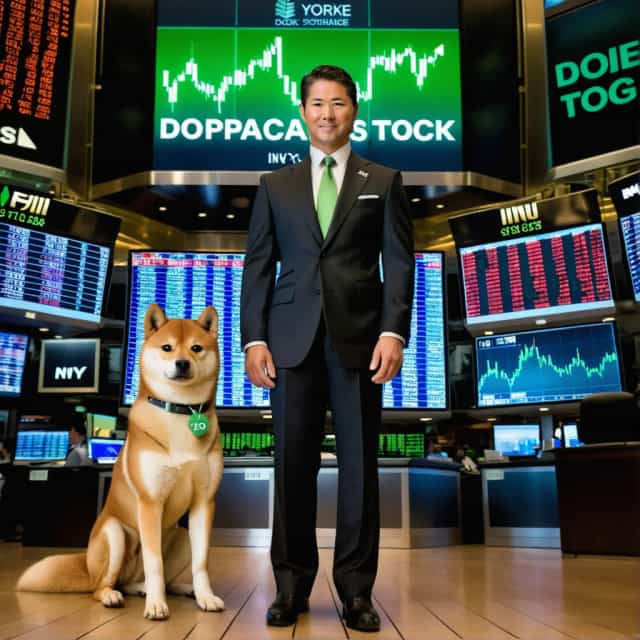
출처: Block Media
Korea’s Stock Market Declines as Foreign and Institutional Selling Pressures Mount
The Korean stock market faced setbacks on the 19th, with the KOSPI index slipping to the 3,450 range after reversing initial gains fueled by optimism from U.S. markets. Although the KOSPI reached a record high earlier in the trading session, profit-taking by foreign and institutional investors led to a downward shift.
According to data from the Korea Exchange, the KOSPI stood at 3,453.56 as of 9:26 a.m., down 7.74 points or 0.22% from the prior session. The index opened slightly lower at 3,461.23, dropping 0.07 points from the previous close of 3,461.30. Despite fluctuating between gains and losses throughout the session, the downward momentum eventually dominated.
The KOSPI previously hit a record closing high of 3,314.53 on November 10, surpassing its earlier peak of 3,305.21 set on July 6, 2021. This marked the fifth consecutive day of record-breaking performance. Although the rally briefly paused ahead of the U.S. Federal Open Market Committee (FOMC) meeting, the index rebounded on the 18th after the FOMC’s decision to lower the benchmark interest rate.
Han Jiyoung, an analyst at Kiwoom Securities, commented, "The market is balancing optimism around short-term gains with caution about sustainability. The rally’s momentum mirrors the sharp gains seen during the economic recovery phase in 2020." She further noted a growing inclination among investors towards profit-taking as indices hit new highs.
In the primary KOSPI market, retail investors emerged as net buyers, purchasing stocks worth 2.97 trillion KRW (approximately $2.2 billion). Conversely, foreign institutions and domestic institutions were net sellers, offloading 1.37 trillion KRW and 1.41 trillion KRW, respectively.
Uneven Sector and Stock Performance on the KOSPI
The KOSPI's sectoral movements were mixed, with some sectors showing resilience and others underperforming. Leading the gains were IT (1.10%), precision medical devices (0.68%), and retail (0.43%). In contrast, general services (-0.06%), real estate (-0.46%), and financials (-0.16%) recorded losses.
Among blue-chip stocks, SK Hynix outperformed, climbing by 0.71%, while other large-cap players posted declines. Samsung Electronics eased by 0.12%, Samsung Biologics slipped 0.53%, Hanwha Aerospace fell 0.88%, and KB Financial receded 0.34%.
KOSDAQ Registers Slight Gains Despite Mixed Sentiment
While the KOSPI struggled, the KOSDAQ index exhibited modest strength. It edged up by 1.16 points, or 0.14%, to trade at 858.27 as of the same time. The index opened at 858.08, reflecting a gain of 0.97 points or 0.11% from the prior session’s closing at 857.11, and incrementally extended its upward movement.
Retail investors in the KOSDAQ market mirrored the trend seen on the KOSPI, acting as net buyers with total purchases amounting to 1.35 trillion KRW. On the other hand, foreign investors unloaded 736 billion KRW worth of shares, while institutional investors sold off 317 billion KRW.
Sector-wise, telecommunications led the gains with an increase of 2.70%, followed by IT at 0.71%. However, losses were observed in precision medical devices (-0.32%) and electronics (-0.47%), reflecting mixed sentiment across sectors.
Among KOSDAQ's leading stocks, there were notable outperformers, including Samchundang Pharm, which rose by 5.30%, ABL Bio, with a 4.59% gain, and Rigencell Biomed, up 3.86%. Conversely, key decliners included Rainbow Robotics (-2.03%), EcoPro BM (-1.87%), and EcoPro (-0.99%).
Tracking Currency Market Trends
The movement in Korea’s stock indices was accompanied by shifts in the foreign exchange market. The KRW-USD exchange rate opened at 1,388.4 KRW, marking an increase of 0.6 KRW compared to the previous trading day’s close of 1,387.8 KRW. This uptick reflects ongoing currency adjustments amid broader global and regional market fluctuations.
The recent slump in the KOSPI, combined with a mixed KOSDAQ performance, underscores the delicate balance currently at play in Korea’s equity markets. A tug-of-war between investor optimism and profit-taking reflects the broader uncertainty in global economic dynamics and domestic trading behavior. Market watchers are now closely monitoring how this shifting sentiment will impact near-term trends in the Korean stock market.










